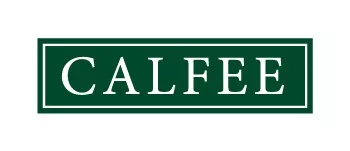Fund wars--episode ii: the commission strikes back
Over the last year, a schism has developed between the U.S. Securities and Exchange Commission (SEC or Commission) and the Federal Courts over the scope of the Commission’s authority to regulate hedge funds’ business operations. Following the Goldberg decision last year which struck down the Commission’s authority to require hedge funds to register as investment advisers, the SEC went back to the drawing-board to develop new procedures for regulating this segment of the capital markets. The result of these efforts is a rule with potentially much broader impact than the one invalidated by the Goldberg court. While it is not clear whether this new rule will survive court challenge, for the time being advisers and managers to all private investment funds--not just hedge funds--must be aware of the sweeping implications the rule has for their operations.
Effective September 10, Investment Adviser Act Rule 206(4)-8 (the Rule) is a forceful and groundbreaking attempt by the Commission to assert regulatory authority over the world of private investment funds. Generally speaking, the Rule prohibits investment advisers to a "pooled investment vehicle" from making false or misleading statements or engaging in other conduct which is deceptive. The Rule’s phrasing makes clear that it does not apply just to managers and advisers to hedge funds. Rather, because it applies to all pooled investment vehicles, regardless of investing strategy or structure, it applies with equal force to private equity funds, venture capital funds and other closed-end funds, as well as their executives, managers and advisers. This is the first time the SEC is seeking to extend its regulatory authority to all private funds in this manner, and represents a substantial shift in its regulatory priorities.
Beyond the drastically broader scope of the Rule as compared to other securities anti-fraud laws and regulations on the books, going forward, there are several substantive regulatory innovations of which fund managers and advisers must be aware.
First, the Rule imposes requirements on fund managers and advisers not only with regard to their interactions with actual investors in their funds, but also on interactions with even prospective investors, regardless of whether an investment is actually made. While the SEC’s investor protection objectives are laudable, the Rule could cause significant unintended consequences, such as putting fund managers at risk of facing an SEC enforcement action for making false or misleading statements even where the individual who received the information suffered no damages because they did not actually invest in the fund.
Second, the Rule expands the scope of covered conduct by applying even to advisers’ conduct that is not connected to an actual security transaction. The Rule suggests that fund advisers need to be especially diligent going forward in ensuring the accuracy of such disclosures as:
- Investment strategies the fund will pursue (including strategies the adviser may pursue for the fund in the future);
- Portfolio valuation;
- Performance of the pooled investment or other funds overseen by the adviser;
- Experience or credentials of principals of the adviser;
- Investment risk; and
- Practices the adviser follows in the operation of its advisory business, such as the adviser’s method for allocating investment opportunities.
It also suggests that the SEC will be scrutinizing the accuracy of funds’ communications with the investing public in the future, and that fund managers need to ensure that a wide range of publications will withstand regulator scrutiny, such as:
- Private placement memoranda;
- Offering circulars;
- Account statements;
- Quarterly, semi-annual or annual reports;
- Personal meetings arranged through capital introductory services;
- Electronic solicitations;
- Adviser biographies; and
- Responses to requests for proposals.
The final and most controversial innovation is the Commission’s intent to punish even negligent violations of the Rule. The Commission’s approach is a substantial break with past practice; under most other securities anti-fraud laws and rules, the SEC will seek to punish only intentional or reckless misconduct. While commentators, and even one of the SEC’s Commissioners, have criticized this aspect of the Rule, as long as the Rule remains in effect, it means that fund advisers and managers must be particularly on their guard to ensure that their funds’ communications will survive this negligence standard if challenged by the Commission.
Advisers’ Act Rule 206(4)-8 indicates that the SEC is turning its attention to the world of private investment funds with an unprecedented level of intensity. Fund advisers and managers need to act accordingly and ensure that their internal policies and procedures, as well as their interactions with the public---including both actual and prospective investors---will pass muster with the SEC.
The content of this article is intended to provide a general guide to the subject matter. Specialist advice should be sought about your specific circumstances.


